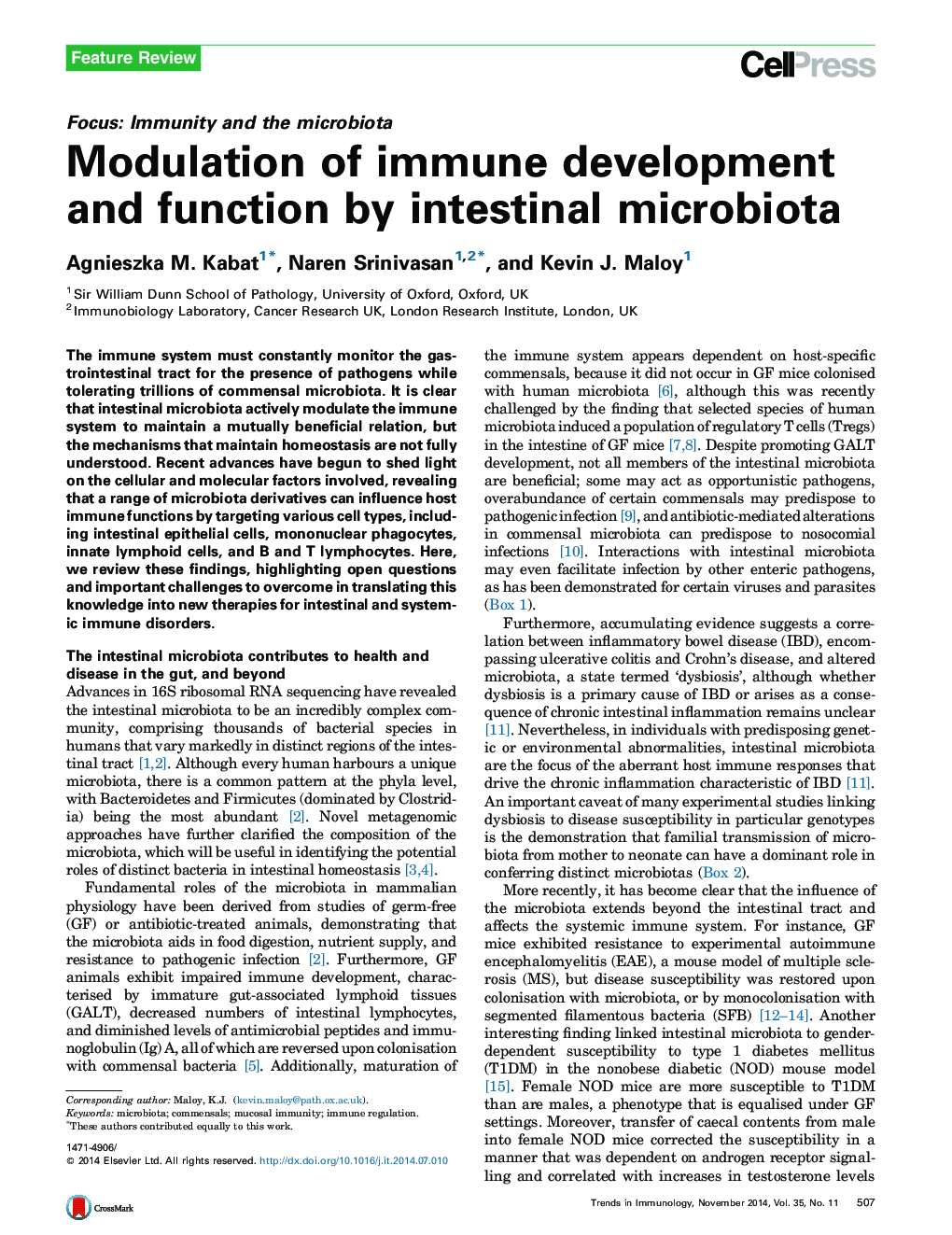| Article ID | Journal | Published Year | Pages | File Type |
|---|---|---|---|---|
| 4359808 | Trends in Immunology | 2014 | 11 Pages |
•The microbiota has a fundamental role in local and systemic immunity and homeostasis.•Interactions involving microbiota, epithelial cells, and leukocytes enforce homeostasis.•Microbial cues (PRR agonists and metabolites) regulate immune development and function.•Microbiota elicit both host-protective and anti-inflammatory T and B cell responses.
The immune system must constantly monitor the gastrointestinal tract for the presence of pathogens while tolerating trillions of commensal microbiota. It is clear that intestinal microbiota actively modulate the immune system to maintain a mutually beneficial relation, but the mechanisms that maintain homeostasis are not fully understood. Recent advances have begun to shed light on the cellular and molecular factors involved, revealing that a range of microbiota derivatives can influence host immune functions by targeting various cell types, including intestinal epithelial cells, mononuclear phagocytes, innate lymphoid cells, and B and T lymphocytes. Here, we review these findings, highlighting open questions and important challenges to overcome in translating this knowledge into new therapies for intestinal and systemic immune disorders.
